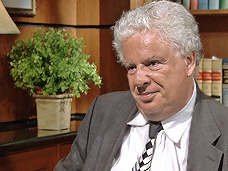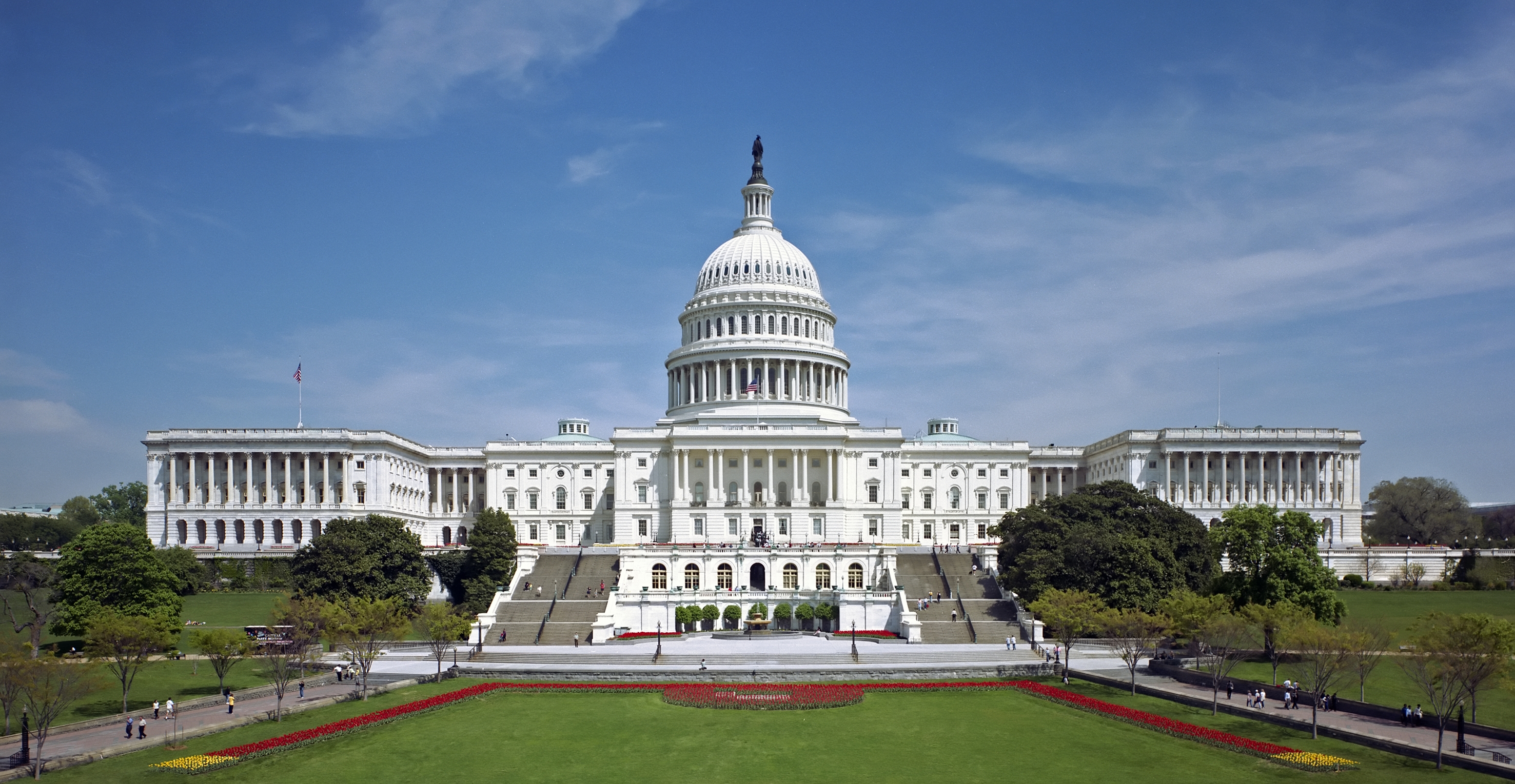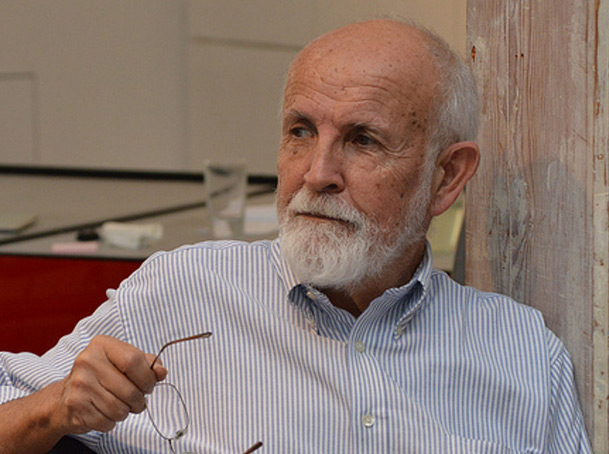Expert Panel Contributions
 Obama's Quandary
Obama's Quandary
Edward Lozansky
Edward Lozansky is president of the American University in Moscow, Professor of World Politics at Moscow Sate University
Nobel Peace Prize winner Barack Hussein Obama elected by American people to put an end to the ignominious, not to say catastrophic, wars in Afghanistan and Iraq, is now preparing to start war number three, this time in Syria, a war fraught with totally unpredictable consequences to America, Middle East and the rest of the world.
The majority of America's public are dead against the war, and the position Congress is likely to take on this matter is not quite clear yet. However, according to Obama and his entourage, even if Congress resolves to vote it down, refusing to authorize hostilities, this does not mean that the president will throw in the towel, as British PM David Cameron did a couple of weeks ago.
The thing is that by making a declaration - one that can be called ill-considered out of politeness only - regarding the existence of some "Red Line” to do with the use or alleged use of chemical weapons by the Assad regime, Obama has driven himself into the unenviable situation chess players call zugzwang: he has to make a move, but any move he chooses to make spells disaster.
Should he give up the idea of using force, the disaster will be his very own personal one. All the hawks will deride him as a weakling, and the cry of chicken will resound far and wide. If on the other hand he decides to strike at Syria, in defiance of the UN, the Pope, the vast majority of other nations, and the will of American public, the disaster will spread dramatically and no one predict for sure what is going to happen.
There is little point in repeating here all the familiar arguments against involving the United States in this tremendous gamble. But the chief point will bear restating again and again: Obama is in fact pushing the United States into a military alliance with the most radical elements among Islamist terrorist organizations.
According to Richard Viguerie, having made a serious blunder by talking of some Red Line in Syria's civil war, President Obama is now set on involving America in a war gamble to save his political face to the detriment of U.S. national security.
This view is echoed by Patrick Buchanan when he says that the new war that is abhorred by the American public will plunge the country into a geostrategic and political catastrophe.
In a rare political turnaround the liberal and moderate democrats are joining forces with republican conservatives to oppose Obama’s push for war.
Apart from everything else, it is hard to make out whose war this actually is. Is it a war of Shia Muslims against Sunni ones? Or is it Muslims radicals fighting against secular Arabs and Christians? Who can spell out what the interests of the U.S. and of our allies may be in all this? And why do we have to strike against Assad if he is fighting against the very forces that make no secret of their ultimate goal - the destruction of America?
Even Obama’s friendly media occasionally lets slip in the views of anti-war reasoning.
Recently C.J. Chivers of the New York Times published a piece on the incredibly barbarous, inhuman acts perpetrated by the so-called rebels. Having read that article, even someone firmly convinced that it was Assad who ordered the chemical attack begin to question the need for U.S. support of his opponents.
We believe Obama and Kerry when they say that the chemical weapons were used but it remains an open question who was the culprit. To be sure, Assad has a lot to answer for, but he is certainly no maniac bent on suicide, and he was only too well aware of that Red Line talk. Crossing that line would clearly mean inviting a U.S. attack, and can anyone believe that Assad is the kind of fool who would do that.
All that chemical attack business looks suspiciously like a well-planned provocation but in any case it is not at all clear why America should get involved in yet another war after the first two she badly lost in that region.
Of course, there is still a way for President Obama to get out of his quandary with minimal loss of face – that is if Congress votes against military action. Then Obama should issue a call for an immediate ceasefire; for ending all arms deliveries to all the parties to the conflict; and for convening a multi-lateral peace conference without any preliminary conditions. I am sure that both Russia and China would back such proposals and Peace Nobel Committee could sigh a relief that they did not make a terrible mistake by awarding Obama with this most distinguished prize.

Why Congress Should Vote ‘No” on Syrian Intervention
By Martin Sieff
Martin Sieff is Chief Global Analyst for The Globalist. He is the author of "The Politically Incorrect Guide to the Middle East”(2008)
Those who forget the past, George Santayana rightly said, are condemned to repeat it.
It is now little over a decade since President George W. Bush’s fateful decision to charge into war in Iraq. Today we find that most of the architects of that catastrophic decision are equally gung-ho about charging into the current Syrian civil war to topple the embattled regime of President Bashir Assad.
The late Saddam Hussein was a bloodstained dictator who deservedly ended his foul life on a gallows. But the second Bush administration’s appalling bungling of the subsequent occupation led directly to an appalling civil war that so far has cost a million lives. It is not over yet. Terrorist violence in Iraq has steadily peaked again.
It is almost never mentioned in the U.S. media that the decisions of Bush and his defense secretary Donald Rumsfeld to invade Iraq and then bungle the occupation led to the annihilation of the country’s ancient Orthodox Christian community, most of whom only survived by fleeing the country.
Today it is the ancient Orthodox Christian community of Syria, once 20 percent of the population, and largely left alone by the Assad dynasty over the past 40 years, that has been decimated by the rebel forces, in which Islamist extreme fundamentalists play an increasingly violent and dominant role.
Many people have learned the lesson of history. Polls indicate two thirds of the American people oppose intervening in the Syrian civil war on behalf of the rebel coalition that includes al-Qaeda.
Syria’s neighbors Israel and Turkey have no cause to love Bashir Assad. But the leaders of both countries, Prime Ministers Benjamin Netanyahu in Jerusalem and Recep Tayyip Erdogan in Ankara, have wisely steered clear of any involvement in the war whatsoever. Erdogan and Netanyahu are bitter political foes. But they are both experienced in leading their nations and neither of them wants to plunge directly into the conflict. This is directly to their credit.
In Britain, an unprecedented bipartisan rebellion of Members of Parliament from the ruling Conservative Party and the opposition Labour Party defeated a motion to bring Britain into the war.
There is no desire to plunge into this war by America’s much maligned Army generals. The Army was exhausted by its 12 years and counting of endless and costly counter-insurgency operations in Iraq and Afghanistan. Those wars have so far cost close to $2 trillion (that is trillion, not billion).
A word of personal recollection: More than a decade ago I was one of the handful of U.S. media analysts to warn of inevitable civil war, anti-American guerrilla war and long-term frustration and failure if the United States went to war to replace Saddam with a U.S.-style democracy in Iraq.
I got no thanks for my prescience, which I predicted in my United Press International columns. On the contrary, I was never given the opportunity to write for the New York Times, the Los Angeles Times, the Wall Street Journal or the Washington Post, unlike such gung-ho supporters of the war as Peter Beinart and Daniel Pipes (who now rightly expresses caution against getting involved with this war). My experience taught me the truth of an old wisdom: Trying to be honest and right never did anyone any good in Washington.
In my 2008 book "The Politically Incorrect Guide to the Middle East” I warned that the artificial democratic government the second Bush administration had crafted for Iraq could not survive the withdrawal of direct and major U.S. military support. We see today in the rising bloodbath of new terrorist attacks the accuracy of that assessment.
A "no” vote in Congress to any declaration authorizing U.S. intervention in Syria would not be bad news for Barack Obama. It would give him the same backhanded legitimacy that British Prime Minister David Cameron earned when the British Parliament wisely rescued him from getting bogged down in the Syrian war. It would give Obama the opportunity to avoid a potentially very dangerous superpower confrontation with Russia over Syria.
Obama would be given the perfect excuse and justification for not going to war. He would be respecting a congressional process. He would be avoiding the notorious example of Lyndon Baines Johnson who plunged into the Vietnam War after winning the Gulf of Tonkin Resolution in 1964 and of George W. Bush in using a notoriously opaque congressional resolution in 2003 as his justification to launch the second U.S.-Iraq War.
In 1982, U.S. President Ronald Reagan refused to go to war against Syria even after 241 U.S. servicemen, including 220 Marines had been slaughtered by the Syrian-supported Hezbollah in a terrorist attack near Beirut. It is Reagan’s example of wisdom and restraint that the U.S. Congress should follow, not those of Johnson and the second President Bush.
Humanitarian Interventions End in Humanitarian Catastrophe
Andranik Migranyan
Institute for Democracy and Cooperation, New York
In the past few days, we have witnessed the belligerent statements of high-level U.S. politicians, from senators to the President himself, that the Syrian regime has used chemical weapons, crossed the red line, and this act cannot go unpunished, obligating America to intervene and show the world that such behavior cannot be tolerated, or else no one would take America seriously.
Before we even begin discussing the consequences of such an intervention, it would be useful to pause and analyze the historic fall-out of such messianic interventions by the U.S. in the name of "saving human lives” and "high humanitarian ideals.”
Let’s begin with the Iraq intervention, which acquired a glum reputation marked by false allegations of the regime’s possession of WMDs, its purported support for Al-Qaeda and radical islamist terrorists, and its ostensible readiness to use WMDs against America and its allies. We all know the depressing results of the intervention. After no one found any WMDs, the intervention was justified by spreading democracy in the Islamic world and the supposed liberation of the Iraqi people from the tyranny of the "bloody dictator Saddam Hussein,” and the solidifying of democracy in that country.
And how did this policy work out? A few hundred thousand killed Iraqis, millions displaced within Iraqi territory, thousands killed and tens of thousands injured American and allied soldiers later, the country lies in ruins, and has de facto split into three parts—Shia, Sunni and Kurdish. Daily terrorist attacks rock the country and claim numerous lives. In view of all this, the Obama administration claimed that the U.S. had fulfilled its mission in Iraq and was time to leave it.
The second such humanitarian intervention, supposedly led to save lives from an evil dictator, was the one in Libya. UN data ranked this country, up until the intervention, as one of the five developing most rapidly and successfully. As a direct result of the U.S. and allied intervention, it is now destroyed to rubble; its leader murdered. Lest we forget, the weapons delivered to the rebels found their way into the hands of radical Islamists. The ensuing destabilization spread outside of Libya to Mali and other neighboring countries. American diplomats were killed, but the fate of Libya is still unclear. Again, Americans supposedly finished their humanitarian mission and the country is in shambles.
The next American action of spreading peace and democracy in the region was its involvement in the Arab Spring, and more specifically, in Egyptian internal affairs. When protesters in Cairo called for the resignation of President Mubarak, the American President also demanded that Mubarak left without delay, despite the thirty-year friendship with the U.S. and despite the fact that Mubarak had, for the longest time, acted as a true and loyal ally, following all of his obligations under the Camp David accords with regard to Israel and stability in the region. The naïve expectations of Washington notwithstanding, Mubarak was not replaced by democrats after the elections. Islamic radicals ascended to power in the face of the Muslim Brotherhood who, very rapidly, turned almost the entire population against themselves. Mass protests erupted again, this time against the Brotherhood, who tried to arrogate all power. That is when the Army stepped in and staged a coup d'état, returning to a worse version of the exactly same form of leadership as before. Instead of a military dictatorship with some civilian institutions and Mubarak at the helm, we now have an open military dictatorship. President Obama forgot why the U.S. tried to get rid of Mubarak in the first place, and now Washington has to live with a newly dictatorial Egypt. Only highly naïve people could expect that a democratic regime would displace the Mubarak dictatorship. Egypt’s economy is a disaster. Egyptians must now live under the threat of a prolonged civil war between the Army and the Muslim Brotherhood, or face the possibility of a strict military dictatorship of the generals with many victims.
Thus, we can conclude that any attempt of the U.S. to interfere with good intentions in a variety of Arab countries leads not to peace, stability and prosperity, but instead creates new colossal problems beginning with state collapse and culminating in total chaos and conflict.
Such an ill-considered, improvised, and fully lacking in strategy American foreign policy in this region naturally erodes the credibility of the U.S. as a responsible actor in the Arab world among many influential countries who do not consider themselves American satellites and try to lead independent and responsible policy. What is baffling is that the American administration, neocons and liberal interventionist lunatics demand, even now in the Syrian situation, that other countries fall in line with the U.S.’s verified ruinous track record, utterly oblivious to how they look in the eyes of the world. By now, it is obvious to many in the U.S. that the American policy of the past two years towards Syria has been a failure.
At this point, it is also blatantly obvious to everyone that President Obama doesn’t like or understand foreign policy and has no clear idea of America’s role and place in the world. Unfortunately, the same holds true for his foreign policy team. This is what explains the improvised, inconsiderate statements of the President such as that Mubarak has to go, Qhaddafi has to go, Assad has to go, strange personal attacks against leaders of great powers, as if he will never need to deal with foreign policy any more or go crawling to those leaders for help.
Of course, the most important consideration today is not whether Assad is good or bad, must he or mustn’t he be punished, and not even who employed chemical weapons. Increasingly aggressive are the domestic and international questions to the Obama administration: if you meddle in other countries and cause regime change, do you know what you are changing that regime for, how responsible are you for the consequences, and how will this influence the country, the region, and even the entire system of international relations? Washington offers no answers to these questions. The foreign policy of the most powerful country in the world is now a series of improvised Obama statements. The most important take-away from these proclamations is that once the President has said something, for whatever reason, it cannot be withdrawn, or no one will respect America. This is why, following his allegation that Mubarak had to go, the Pentagon teamed up with Egyptian generals to overthrow Mubarak. If the President has reached the conclusion that Assad needs to go, then how can anyone discuss mechanisms for power transition? Given the Obama statements taken as gospel, where are the incentives for the Syrian rebels to sit down and negotiate a peace settlement with Assad? They have every reason to expect the U.S. will come and bomb the regime. If the President has said that chemical weapon use is crossing the red line, then it matters not at all who used it: the U.S. will bomb the Assad regime regardless.
We must remember that this region has a very uneasy balance of Sunni and Shia power. Iran, the Iraqi Shia, Syria, Hezbollah, and Hamas are in an informal coalition against Saudi Arabia, Qatar, Turkey, and the rest of the Sunni countries in the region, and disturbing this balance can have unpredictable consequences both inside those countries and regionally. This is why the enmeshing of Israel in the destabilization of Syria and the Assad removal seems strange: the predictable and understandable Assad ought to be more acceptable to Israel than the utterly unpredictable radical Islamists who might replace him. The tilted balance of power in the region may pit Israel against a consolidated coalition of radical Islamists. The U.S. and the West may end up similarly pitted against such a coalition: the disturbed power balance between Sunni and Shia influence in the wider Middle East may yet give birth to a more radicalized Islamic threat to the Western world.
From all said, we can draw the conclusion that today, it is not Iraq, Libya, Syria, or Egypt that pose a threat to the world and to the system of international relations. The largest threat to the entire system of international relations stems from a country that is stronger militarily by far—the United States, which, under the leadership of dilettante politicians is drawn into a multitude of conflicts in global hot spots with the fairest of intentions. It is obvious that today the U.S. lacks the resources, understanding, desire, and popular support to engage in nation and state building in other countries. As a result of American interference, local conflicts and problems fester into global ones and become impossible to solve. Each time, the Americans abandon yet another country whose people they had wanted to make happy, leaving immeasurable destruction and uncounted victims in their wake. Chaos and ungovernability grow. The looming question is how to stop America’s itch for humanitarian interventions that become catastrophic for all. Everyone can see that we must somehow rein in this behemoth that follows its mad urges to allegedly make humanity happy under the leadership of American neo-Bolsheviks—neocons and liberal interventionists with dim understanding of the world and American capabilities. The only hope is that the firm, consistent, and responsible policy of Russia, China, and (I hope) India, Brazil and others, together with the growing influence of wiser powers inside the U.S. such as Senator Rand Paul, can diminish the costs of American humanitarian interventions bringing chaos and instability in the world.

The Last Hurrah for American Unilateralism
Nicolai Petro
Nicolai Petro is Professorof Political Science at University of Rhode Island
Obama found himself in hot water at the G20 summit. Having orchestrated a brilliant move to force the Republicans to go on the record in support of an Obama foreign policy initiative (a military strike against Syria), he learned at the G20 just how unconvincing his reasons sounded to much of the rest of the world.
Most observers seem to think that the disagreement between the U.S. and the rest of the world revolves around whether chemical weapons were used and who used them. It does not. The real issue of contention here is who has the authority to issue and impose sanctions on behalf of the international community.
Three distinct views on this were on display at the G20. One view, held by the United States alone, is that it has the right to speak for and act on behalf of the international community. As President Obama put it at his press conference in Stockholm,"I didn’t set a red line, the world set a red line.” United Nations consent is not needed and rarely preferred.
A second view, which has its share of supporters in Western Europe, argues that although United Nations consent is preferable, ultimately any coalition led by the United States has the authority to act independently. America’s traditional allies are not always willing to provide military or financial support, but they are at least willing to give the United States the benefit of the doubt.
The view of most other nations was forcefully articulated by the leaders of the BRICS (Brazil, Russia, India, China, and South Africa) at this summit. It is that no one nation, or group of nations, has the authority to act outside of UN guidelines. Any military action taken without explicit UN sanction is a violation of international law.
We have Putin to thank for this. Since his speech at the 43rdMunich Security Conference admonishing the United States for carelessly overstepping its national borders. As a result, he said, "no one can feel that international law is like a stone wall behind which they can find shelter,” Russia’s president has emerged the world’s most ardent advocate of multilateralism.
Putin’s critics in the United States often mistake this for anti-Americanism, though it can easily be argued that Putin began his presidency as the most pro-American leader Russia has ever had. One can only mistake his present stance for anti-Americanism if one equates American interests with the pursuit of global hegemony.
In fact, Putin has done the President and the American people a great favor by forcing them to confront opinions they usually ignore. Obama can now be under no illusions about how the majority of the world regards his decision to strike Syria outside of the framework established by the United Nations.
Will this knowledge change America's course? The initial signs are not encouraging.
In a last ditch effort to convince America’s closest allies to support the Syrian war effort, the United States put intense pressure on ten other G20 leaders to sign a statement supporting U.S efforts for "astrong international response.”
Administration officials say that because these nations are aware of US military preparations they are "effectively embracing it” (New York Times, September 7, 2013). This is certainly not the interpretation of Italian Prime Minister Enrico Letta, who reiterated that Italy would not intervene without a clear UN mandate.
But while Obama seems trapped into arguing that there is no alternative to war, the G20 meetings did encourage him to consider leaving himself a way out.
According to the Italian newspaper La Republicca (September 7, 2013), part of the deal for getting the ten signatures in support of U.S. efforts was a commitment by both France and the United States to await the findings of the U.N. report on Syria. French President Hollande has already publicly acknowledged this, although president Obama has not.
If this report does not alter the current course toward war, however, we may be witnessing the last hurrah for American unilateralism.

SHOULD AMERICA GO TO WAR?
Frank Shatz
Frank Shatz is a Columnist for the The Virginia Gazette
For this week’s Experts’ Panel discussion, the case against America going to war over the use of chemical weapons in the Syrian civil war was made by Pat Buchanan..
He has made a strong argument against unleashing American cruise-missiles on targets in Syria, pointing out, "Make no mistake; if Obama attacks Syria, be it for hours or days, we are in that blood-soaked abattoir for the duration.”
His stand on issues, however, must be taken with a grain of salt. While he served as special assistant to President Reagan, his outlook on the role the United States ought to play in world affairs was quite different from the one he is taking now or when he was a Republican presidential contender.
In letters to me, while I was serving as Executive Director of the Lake Placid Council on Foreign Policy, he expressed his belief in the need for active U. S. involvement in world affairs. He rejected the isolationist concept in foreign policy and promoted American involvement in Central America. But he remembered also the infamous, "Contra Aid” scandal that embroiled the Regan administration.
What Buchanan in his Experts’ Panel contribution doesn’t spell out is a constructive solution to the, Syrian crisis. But, Jeffrey D. Sachs, professor at Columbia University and Special Adviser to the U. N. Secretary General, in a highly regarded article, does.
He advises that the US should reverse course. He writes, "A direct attack on Syria without UN backing is far more likely to inflame the region than it is to resolve the crisis…Instead, the US should provide evidence of the chemical attacks to the UN and the Obama administration should try to work with Russia and China to enforce the Chemical Weapons Convention…. It would enable the UN peace process to resume, this time with the US and Russia working together to restrain violence and find a long-term pragmatic solution to Syria’s deep domestic divisions.”
Prof. Sachs’s recommendation parallels the thoughts I have articulated in my last week contribution to the Experts’ Panel discussion. Namely, that what is needed is a creative diplomatic solution. To assure Russia, a new Syrian regime, that doesn’t include President Bashar al-Assad, would honor the commitments made to Russia, including its naval presence at the port of Tartus.









